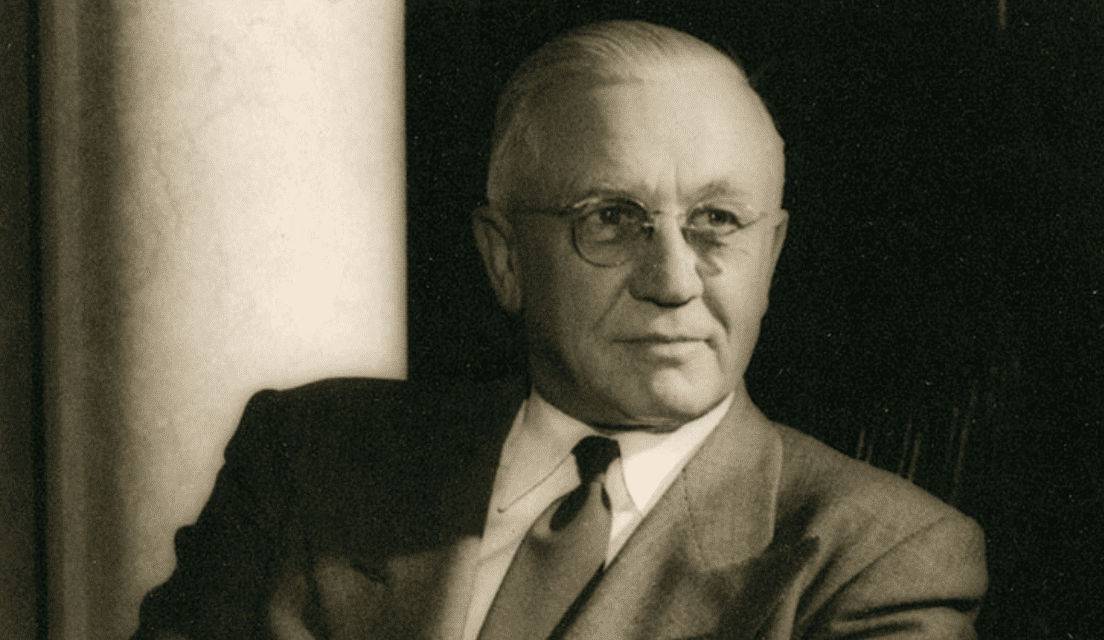Oscar Rennebohm was a significant figure in Wisconsin’s business and politics during the first half of the last century, although his impact here continues to this day.
Born on May 25, 1889, in Leeds, Wisconsin, within Columbia County, Rennebohm moved with his family to Milwaukee at the age of ten. He graduated from the University of Wisconsin in 1911 with a degree in pharmacy, setting the stage for his future endeavors in both the business and political arenas.
Rennebohm’s career in pharmacy began after his graduation. He worked as a druggist before founding Rennebohm Drug Stores in 1912 as a Rexall franchise location. This venture proved to be quite successful, eventually growing into a chain of drugstores across Madison. His involvement in the pharmaceutical industry extended to leadership roles; he eventually served as vice-president of the American Pharmaceutical Association, president of the Wisconsin Pharmaceutical Association, and was a member of the Board of Regents at the University of Wisconsin.
During World War I, Rennebohm demonstrated his commitment to public service by leaving his business and attending officer candidate school and being commissioned as an Ensign in the United States Navy. This military service, though brief, was indicative of his broader sense of duty to his country.
Politically, Rennebohm’s career took off when he was elected as a Republican to serve as the 30th Lieutenant Governor of Wisconsin in 1944, serving alongside Governor Walter Samuel Goodland. Upon Goodland’s death in 1947, shortly after the beginning of his third term, Rennebohm ascended to the governorship with the title ‘acting governor.’ He was then elected as the 32nd Governor of Wisconsin in his own right in 1948, serving until 1951.
During his governorship, Rennebohm was known for his educational reforms and initiatives aimed at improving public welfare. One of his most notable contributions was initiating a housing program for veterans, which was financially supported by an increase in liquor tax. This program was part of his broader vision to ensure that returning soldiers had the necessary support to reintegrate into civilian life.
Rennebohm’s legacy also includes his philanthropy. In 1949, he founded the Rennebohm Foundation, which, since its inception, has invested more than $96 million into the Madison community, focusing on areas like education, health care, research, and human services. The foundation has supported numerous projects, including the construction of the University of Wisconsin’s Rennebohm Hall, named in his honor, which houses the School of Pharmacy.
After retiring from politics in 1951, Rennebohm returned to his business interests. His drugstores continued to thrive until the chain was sold to Walgreen Co. in 1980. He remained active in community affairs and continued to support education and health initiatives through his foundation.
Oscar Rennebohm passed away on October 15, 1968, in Madison, Wisconsin, at the age of 79. He is buried at Forest Hill Cemetery in Madison. His life’s work not only shaped the commercial landscape of Madison through his drugstores but also left an imprint on the state’s educational and public health systems through his political and charitable activities.
His legacy is remembered through numerous landmarks and institutions, including the Rennebohm Foundation’s ongoing contributions to the community and the naming of the School of Pharmacy at the University of Wisconsin after him. Rennebohm’s story is one of a self-made businessman who leveraged his success for the betterment of his community, reflecting a commitment to Wisconsin, a deep sense of civic duty, and a dedication to public service that went beyond his professional achievements.
Photo: Oscar Rennebohm Foundation


















